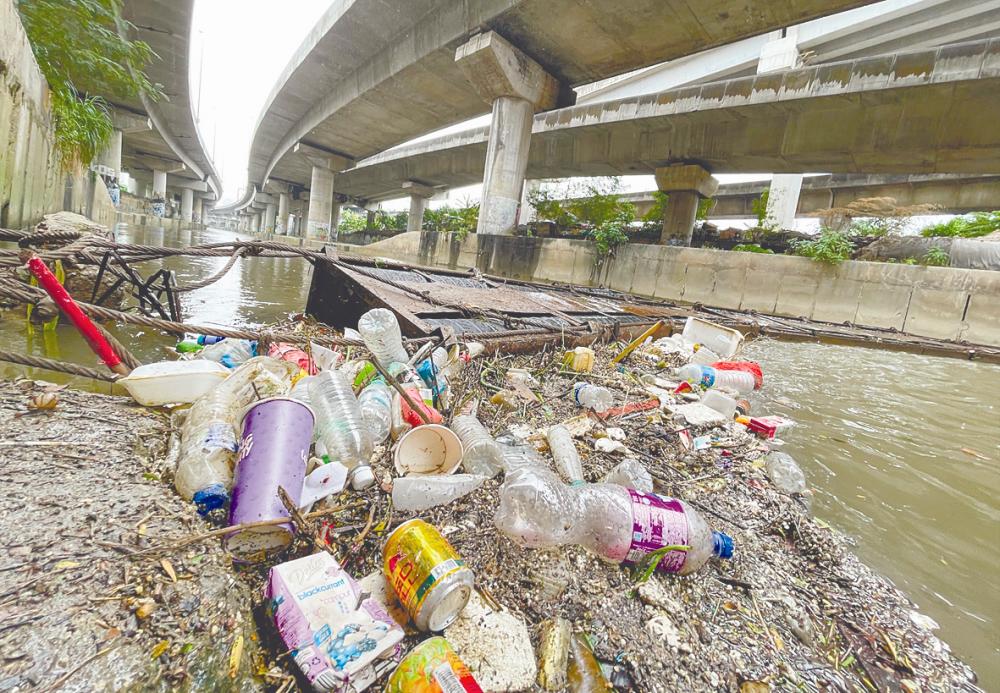PETALING JAYA: Malaysia’s battle against plastic pollution is facing significant challenges due to the absence of a uniform plastic policy, said Universiti Putra Malaysia Faculty of Forestry and Environment senior lecturer Dr Mohd Yusoff Ishak.
“This has led to inconsistent enforcement across the states, with some banning plastic straws and others charging different amounts for plastic bags. This confusion undermines the policy’s effectiveness.”
He was commenting on a recent statement by Natural Resources and Environmental Sustainability Minister Nik Nazmi Nik Ahmad, who acknowledged in the Dewan Negara on Dec 17 that existing policies on managing plastic waste were fragmented.
Global data and business intelligence platform Statista said Malaysia received more than 405,000 metric tonnes of plastic waste in 2023 from several countries, ranking it among the top importers of such material.
He said the fragmented approach to managing single-use plastics has also led to uneven environmental outcomes.
“Weak regulations contribute significantly to plastic pollution, with single-use plastics often ending up in water bodies, harming aquatic life and ecosystems.
“Coastal and riverine ecosystems are among the most affected as plastic waste accumulates in such areas, endangering turtles, fish and seabirds, among others,” he said. He added that the use of technological solutions, such as Polymateria Lyfecycle Technology, which “self-destructs” plastic and safely returns it to nature after a year if not recycled, must be complemented by changes in human behaviour to ensure a sustainable future.
“Implementing a nationwide plastic-related Act is feasible but requires sustained political commitment at all levels of government. A comprehensive Act must go beyond setting recycling targets and address the unique challenges Malaysia faces.”
He said legislation should strengthen waste management in underserved areas, prevent illegal dumping, enforce stricter penalties for repeat offenders and hold producers accountable for the full life cycle of their plastic products.
Mohd Yusoff said to address the disconnect between federal and state policies, the federal agency must involve state governments and local authorities in the policymaking process to ensure alignment with regional realities.
He also proposed revisiting the role of the Solid Waste Management and Public Cleansing Corporation and allocating funds from EPR (extended producer responsibility) initiatives to support municipal waste management improvements.
Mohd Yusoff cautioned that without a uniform policy, plastic pollution would jeopardise the country’s net zero carbon goals, with inadequate recycling systems and inconsistent regulations worsening pollution and emissions.
“Public education is also vital as it helps the people understand the broader environmental consequences of plastic pollution, such as its impact on rivers, wildlife, ecosystems and human health, while policies provide a framework to act against those flouting the law.”
Stressing the need for stricter regulations and incentives on the role of industries, he said they must take responsibility for the entire life cycle of their products, including waste collection, recycling and disposal.
“Incorporating incentives such as tax breaks and penalties for non-compliance is essential to engage industries to reduce plastic pollution. Such a framework must address plastic pollution comprehensively, engage multiple stakeholders and support sustainable development,” he said.
Mohd Yusoff also emphasised the need for immediate government action to harmonise efforts across state and local levels through a national plastic policy framework, in which cross-ministry collaboration between the Housing and Local Government Ministry and the Natural Resources and Environmental Sustainability Ministry is crucial.
“These measures should complement the existing Zero Single-Use Plastic roadmap by enhancing alignment, improving enforcement and fostering stakeholder collaboration.”









